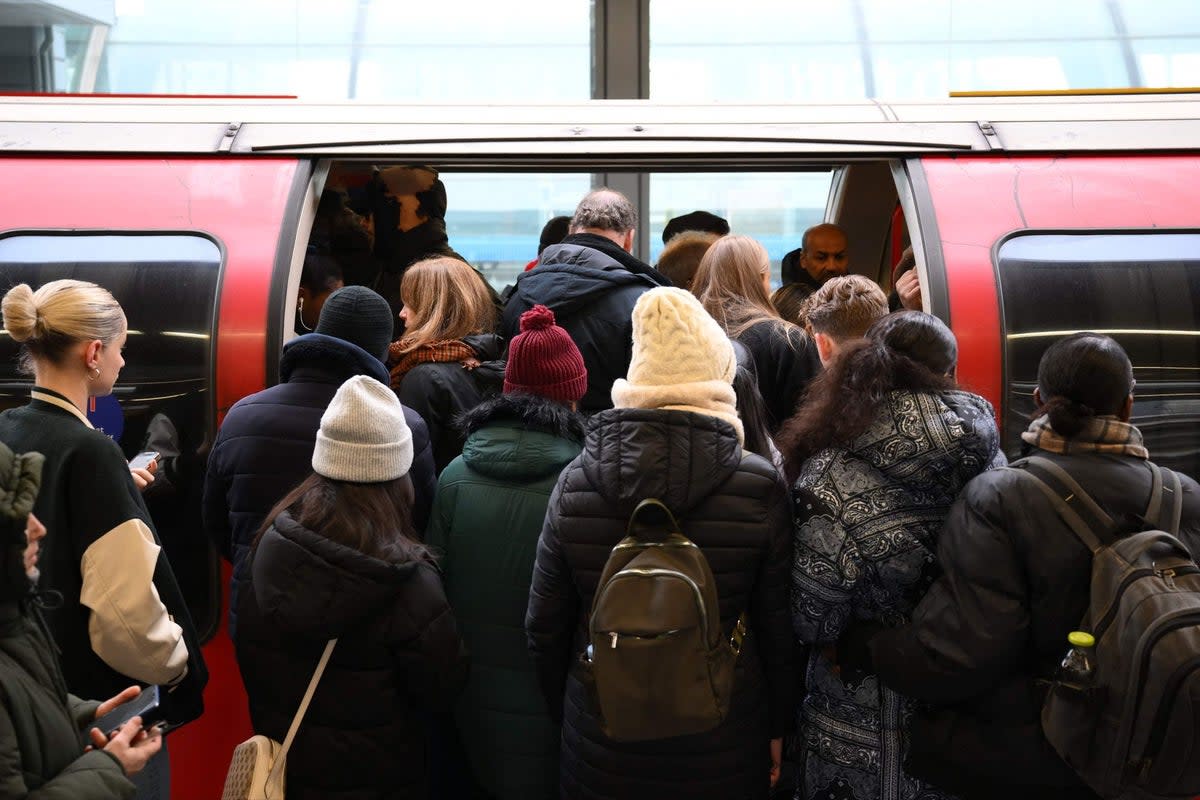Revealed: Central line emergency timetable will see third fewer evening rush hour trains

Passengers on the Central line will have about a third fewer trains than normal during the evening rush hour under an emergency timetable, it can be revealed.
Details emerged on Wednesday of the train schedules that will run as Transport for London tries to mitigate long-term problems with broken trains and even out gaps in service.
Passengers have suffered delays and cancellations since the start of November because the 32-year-old trains are repeatedly having to be taken out of service for a week at a time due to an “abnormally high number of motor failures”.
In a message to staff, Margaret Waite, head of customer operations on the Central, Waterloo & City and Victoria lines, said: “Under the new timetable we will run an average of 21 trains per hour in the busiest direction in the evening peak, instead of the average of 30 trains per hour currently scheduled, which we are not currently able to deliver due to ongoing fleet issues.
“Trains will still be scheduled to run approximately every three minutes at peak times in the core section, between White City and Leytonstone.”
Tube insiders fear the problems on the Central line are a precursor to similar issues developing on the Jubilee and Northern lines, whose trains will require replacement by the end of the decade – though there are no funds to do this.
Ms Waite admitted further problems had been caused on the Central line due to the failure of track monitoring equipment – requiring temporary speed restrictions to be introduced.
“This means that on some targeted sections of the line, customers will currently experience periods where their train does not travel as quickly as usual,” she said.
This has resulted in fewer trains to Hainault via Newbury Park, with gaps of about 10 minutes between trains. As the speed restrictions are removed “in the coming days and weeks”, the gaps should be reduced to five minutes.
She said the engineering team that carried out train repairs was being strengthened. A £500m programme that fully refurbishes five or six trains at a time over several months will continue until 2029.
Shuttle buses are being used as a fall-back on the eastern end of the line. “I appreciate that the ongoing levels of service on the Central line are frustrating at the moment,” she said.
A TfL spokesperson said: “We have now introduced a new timetable on the Central line to make journeys more even and to create more certainty for customers while we continue to carry out urgent work to fix motors on the ageing train fleet. This will mean a more consistent frequency across the whole line while this work is undertaken.
“We apologise for the ongoing situation and our engineers are working around the clock to address the issues as soon as possible.”


